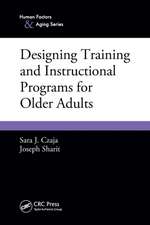Achieving a Productive Aging Society
Autor Scott A. Bass, Francis G. Caro, Yung Ping Chen, Jill Nortonen Limba Engleză Paperback – 20 iun 1993 – vârsta până la 17 ani
| Toate formatele și edițiile | Preț | Express |
|---|---|---|
| Paperback (1) | 321.78 lei 6-8 săpt. | |
| Bloomsbury Publishing – 20 iun 1993 | 321.78 lei 6-8 săpt. | |
| Hardback (1) | 439.85 lei 6-8 săpt. | |
| Bloomsbury Publishing – 29 iun 1993 | 439.85 lei 6-8 săpt. |
Preț: 321.78 lei
Preț vechi: 481.61 lei
-33% Nou
Puncte Express: 483
Preț estimativ în valută:
61.58€ • 63.06$ • 51.22£
61.58€ • 63.06$ • 51.22£
Carte tipărită la comandă
Livrare economică 19 martie-02 aprilie
Preluare comenzi: 021 569.72.76
Specificații
ISBN-13: 9780865690332
ISBN-10: 0865690332
Pagini: 328
Dimensiuni: 156 x 235 x 24 mm
Greutate: 0.51 kg
Editura: Bloomsbury Publishing
Colecția Praeger
Locul publicării:New York, United States
ISBN-10: 0865690332
Pagini: 328
Dimensiuni: 156 x 235 x 24 mm
Greutate: 0.51 kg
Editura: Bloomsbury Publishing
Colecția Praeger
Locul publicării:New York, United States
Notă biografică
Scott A. Bass is Director of the Gerontology Institute, University of Massachusetts at Boston. He is also Director of the PhD in Gerontology Program, one of two in the country, and chair of the Gerontology Department. He is a Professor and a founder of the Gerontology Certificate Program in the College of Public and Community Service, a model for the training of students over 60 years old for careers in aging and social policy. Under Dr. Bass's leadership, the Gerontology Institute has grown in one decade to a nationally recognized research and policy institute devoted to the problems of our aging society.Francis G. Caro is Director of the Frank J. Manning Research Division of the Gerontology Institute, University of Massachusetts at Boston, and is a member of the faculty of the PhD program in Gerontology. Formerly Director of Reserach for the Community Service Society of New York, a major private social welfare agency which among other things is engaged in policy research on problems of the poor in New York City, he is an internationally recognized expert on long-term care and urban policy.Yung-Ping Chen is the first holder of the Frank J. Manning Eminent Scholar's Chair in Gerontology at the University of Massachusetts at Boston, and a member of the faculty of the PhD program in Gerontology. Previously, he was the first occupant of the Frank M. Engle Distinguished Chair in Economic Security Research at American College in Bryn Mawr, Pennsylvania. Recipient of a Warren C. Scoville Distinguished Teaching Award (Economics) at the University of California at Los Angeles where he taught for many years, he earlier held a Brookings Research Professorship, Brookings Institute, Washington, DC.
Cuprins
Preface by Scott A. BassAchieving a Productive Aging Society by Francis G. Caro, Scott A. Bass, and Yung-Ping ChenAge, Productivity, and Transcendence by Harry R. MoodyLabor Market Obstacles to Productive Aging by Joseph F. Quinn and Richard V. BurkhauserAgeism in the Labor Market versus Productive Aging by Alan Walker and Philip TaylorNew Technologies and the Aging Work Force by David C. Mowery and Mark S. KamletIs Unretirement Unprecedented? by W. Andrew Achenbaum and Malcolm H. MorrisonFormal Volunteer Work Among Older Americans by A. Regula Herzog and James N. MorganCaregiving and Productive Aging by Pamela Doty and Baila MillerThe Political Economy of Productive Aging: Long-term Care by Laura Katz OlsonReligious Institutions and Productive Aging: Lost Traditions/Horizons Reclaimed by W. Andrew AchenbaumThe Lessons of Television: Learning Productive Aging as a Social Role by George GerbnerA Strategy for Productive Aging: Education in Later Life by Harry R. MoodyWomen's Lives, Women's Work: Productivity, Gender, and Aging by Martha HolsteinCultural and Ethnic Contexts of Aging Productively Over the Life-Course: An Economic Network Framework by James S. Jackson, Toni C. Antonucci, and Rose C. GibsonContinuing Limits on Productive Aging: The Lesser Rewards for Working Women by Karen C. HoldenConclusion: Defining the Place of the Elderly for the 21st Century by Robert MorrisIndex














